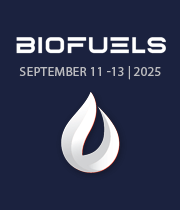Title : Development of gas fermentation system by using HTB approaches for the obtainment of sustainable biomaterials
Abstract:
Gas Fermentation Technologies (GFT) offer a promising approach to decarbonization by converting syngas and H?/CO? into valuable chemicals. This study explores Hybrid Thermochemical-Biological (HTB) strategies to optimize volatile fatty acid (VFA) production from syngas and the condensable fraction (WS) of pyrolysis-gasification using a mixed microbial culture (MMC). Pyrolysis-gasification was conducted in a tubular furnace with a quartz reactor, followed by aerosol capture and gas collection. Pyrolysis occurred at 450°C for 30 min with a CO? flow rate of 0.1 LPM, while gasification followed at 750-900°C for 40 min with a CO? flow rate of 0.5 LPM at 750°C.
This process yielded condensable (WS, 30.23%), non-condensable (syngas, 23.8%), and solid (biochar, 20%) fractions. To improve gas-liquid mass transfer, a biochar-based polystyrene gas diffuser was incorporated into a Char-Based Biofilm Sparger Reactor (CBSR). Syngas fermentation was conducted at 35°C (mesophilic conditions) under various dilution rates, followed by a second experiment co-fermenting syngas and WS (co-substrate) under the same conditions. The CBSR, featuring a biochar-polymer composite, significantly enhanced gas transfer and microbial activity. VFAs (acetic acid) concentrations during syngas fermentation reached 20-25 gCOD/L, while co-fermentation with WS further increased yields to 40-45 gCOD/L. This demonstrates the effectiveness of HTB strategies in improving VFAs production (predominantly acetic acid). Co-fermentation of syngas with WS in a CBSR enhances VFAs production. The results highlight the potential of HTB approaches and CBSR system to overcome gas fermentation challenges, paving the way for sustainable biomaterial production.



